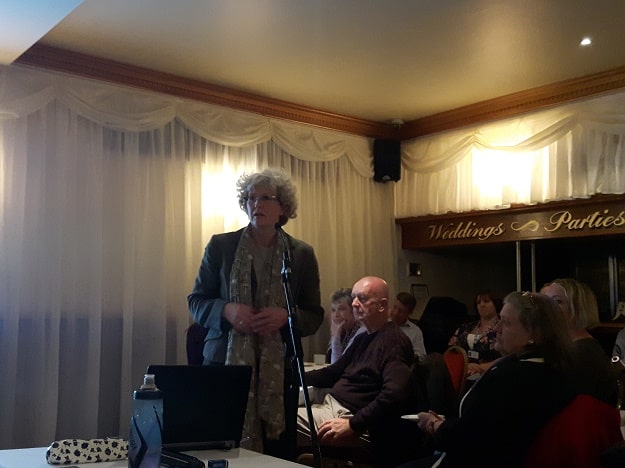
The Care Quality Commission (CQC) has rated maternity services provided by East Kent Hospitals University NHS Foundation Trust as Requires Improvement following an inspection. Two Requirement Notices have also been issued relating to improvements needed to governance and provision of the safe care and treatment in its the maternity services.
The CQC carried out an unannounced inspection of maternity services at Queen Elizabeth The Queen Mother Hospital, Margate, and William Harvey Hospital, Ashford, on 22 and 23 January 2020, along with a further unannounced visit to the hospitals on 4 and 5 February 2020.
The CQC inspections took place after concerns were raised about the safety of maternity services at the Trust, including the inquest this January into the death of baby Harry Richford, who died at Queen Elizabeth The Queen Mother Hospital in 2017, and a number of families then coming forward over the ‘preventable’ deaths of their babies.
The CQC report notes that “following the investigations into serious incidents, we found the maternity service implemented learning to improve safety for women and babies… Duty of candour had improved with the head of midwifery and senior maternity leadership having strengthened the way in which they communicated incidents with families following serious incidents.”
Overall, maternity services across the trust remain rated as Requires Improvement. Services are rated Good for being effective, caring and responsive to people’s needs and Requires Improvement for being safe and well-led.
CQC Deputy Chief Inspector of Hospitals
Dr Nigel Acheson, CQC’s Deputy Chief Inspector of Hospitals, said:“We found a number of improvements had taken place in the maternity units at both William Harvey Hospital and Queen Elizabeth the Queen Mother Hospital since our last inspection of East Kent Hospitals University NHS Foundation Trust in May 2018, but some concerns remain, and we will follow up to make sure that these are addressed.
“Our inspectors found a team committed to learning and continually improving the department. The service had a vision for what it wanted to achieve and a strategy to turn it into action.
“The department had recently implemented additional Cardiotocography (CTG) training for staff and aimed to ensure a safer outcome for babies. CTG is a means of recording the foetal heartbeat and contractions during pregnancy.
‘Still work to be done’
“Despite these green shoots of improvement there was still work to be done especially in antenatal services.
“At William Harvey Hospital, the antenatal clinic in outpatients was poorly maintained. Staff in day care did not always report incidents, which meant managers could be unaware of avoidable events on the unit.
“Our inspectors found junior midwives, without the experience or knowledge to escalate complex emergency situations, working alone in day care. After our inspection the trust told us they were reviewing rosters to ensure there was always an experienced midwife on duty and staff could contact a senior midwifery co-ordinator to escalate concerns.
“We found that because the risk to women was not effectively managed in antenatal services, midwives sometimes had to review and assess women, who may be at high risk, rather than a doctor. Midwives told us that a senior doctor was sometimes available in clinic. However, it was usually a junior doctor with limited experience in obstetrics that would review and discharge.
“We fed our findings back to the trust and its leadership knows what it must to do to bring about improvement. The trust is currently being supported by NHS Improvement through their Maternity Support Programme. We will work closely with other stakeholders to monitor the trust’s progress. We will return at a later date to check on what progress has been made.”
Since 2017, changes put in place within the maternity service include a new leadership team, a staff training programme and new equipment. Following its inspection, the CQC recognised that leaders had improved the governance processes throughout the service with support from partner organisations. It found ‘effective structures, systems and processes to support delivery of the maternity service’.
However, it found the new governance processes were not yet fully embedded in some areas. It cited areas requiring improvement, primarily in the hospital antenatal triage and day care services used to assess and monitor women experiencing pain or symptoms from 16 weeks of pregnancy.
The maternity service retained its rating as ‘requires improvement’ overall, while the service at Queen Elizabeth The Queen Mother Hospital, Margate, was upgraded to ‘good’ for ‘Responsive’, which means services are organised in a way that meets women’s needs.
Specific findings of the report include:
Staff monitored the effectiveness of care and treatment and used their findings to make improvements and achieved good outcomes for women.
Staff worked well together for the benefit of women.
The Trust had reviewed its escalation process and implemented processes to make sure patient safety was at the centre of women’s care, and safety huddles, on-call medics, and the centralised fetal monitoring system would ensure that escalation processes were strengthened.
The service treated concerns and complaints seriously, investigated them and shared lessons learned with all staff.
Inspectors also found areas of ‘outstanding practice’, including the Trust’s state-of-the-art simulation training equipment, which allows all staff exposure to simulated ‘real life’ emergency situations for life-saving training, and providing wraps to help new mums give ‘skin to skin’ care when breastfeeding their babies.
Improvements noted by the CQC following their previous inspection in 2018 include:
Scanning all women at 36 weeks of pregnancy to reduce the incidence of birth complications, caesarean sections, breech birth and pre-term babies, in line with best practice
Women receive one-to-one care during childbirth
Midwifery staffing levels had improved and were safe and in line with national guidance
Strengthened clinical leadership.
Areas needing action:
Standard operating procedures within the new antenatal triage service, including guidelines for risk assessment and escalation – the CQC found these were not always followed within the triage service, which meant the necessary care and treatment were not always identified quickly. The CQC found these guidelines were being followed on the hospitals’ labour and post-labour wards. The CQC found staff in day care did not always report incidents, which meant managers could be unaware of avoidable events on the unit.
Since the CQC’s inspection, the service has begun using the nationally-recommended safety communication system called ‘Situation, Background, Assessment and Recommendation’ (SBAR) for all women presenting to triage. The Trust has also recently appointed a Maternity Governance Lead to co-ordinate the review and improvement of the service’s internal governance processes and improve reporting of incidents.
Antenatal documentation – this was not always clear or up-to-date, because 50% of records were stored digitally and 50% were hand written. The CQC found documentation was well kept and detailed on the labour and post-labour wards.
The Trust is investing in the Maternity Information System, which is supplied by an external provider, so the Trust can begin using further digital recording throughout pregnancy and birth as soon as the technology becomes available.
Long waits and limited senior doctor cover in the hospitals’ antenatal day care service.
The Trust has since changed the midwifery rota to improve midwifery staffing levels in the antenatal triage and day care service and has increased the senior doctor presence throughout the day. Additional consultants have been recruited, which will ensure continued senior doctor presence.
Since the CQC’s inspection, the service has included all waiting times on the electronic patient records, reported them in the care group quality and risk report, and introduced a weekly review by a senior midwife.
At William Harvey Hospital, the inspection team found cleaning checks were out of date on some equipment in the antenatal and day care service. The cleaning checks are now being monitored regularly.

Trust Chief Executive Susan Acott said: “The improvements and positive work cited in the CQC’s report is a testament to the hard work put in by the maternity and obstetric teams to improve the quality of services for women and babies in east Kent.
“We know we have much more to do. We are already acting on the CQC’s recommendations, and have improved staffing levels in the antenatal triage and day care service, implemented a nationally-recognised safety system in that service, and appointed a Maternity Governance Lead to co-ordinate the review and improvement of the service’s internal governance processes.
“We are determined to provide an excellent standard of care to every mother and child who uses our maternity service and we will continue to make improvements and make sure positive changes are thoroughly embedded, so local families can have absolute confidence in their care.”
Healthwatch’s Robbie Goatham said: “We know staff have been working hard to improve the maternity service in East Kent so it’s good to see this has been recognised by the CQC. There’s still more to be done and if you’re reading this today, and you’ve recently used maternity services in East Kent, we’d urge you to share your story. Healthwatch is an independent organisation set up to listen to patients so do get in touch. Your experience could help improve the service for someone else.”
County councillor Karen Constantine, who sits on the authority’s health scrutiny panel, said: “Safety is paramount in maternity services. It’s clear that urgent action is still needed at QEQM. But it’s also clear that significant improvements have been made. These improvements needs to be embedded and we need the Trust to be vigilant to stop improvements eroding.
“The CQC report highlights the need for more training of midwives. It can be difficult to factor in the time needed for training. But it must be done. If necessary additional qualified staff must be employed.
“The lack of continuity in antenatal is care is a clear risk area. Recording needs to be standardised quickly. Incidents should always be reported, it’s not good enough to say this process is under review, staffing needs to be improved so senior and more clinically experienced midwives are always on hand.
“The report highlights the long waits and limited senior doctor cover in the hospitals’ antenatal day care service. The Trust must address this issue.
“The report serves as a timely reminder about how important QEQM is to the health and well being of Thanet residents. Maternity and other services need to safeguarded from closure.
“There has been incredible concern about fears that QEQM is having services removed and that it is being ‘hollowed out’. We need assurances from the Trust that our local services are safe from further cuts.”

